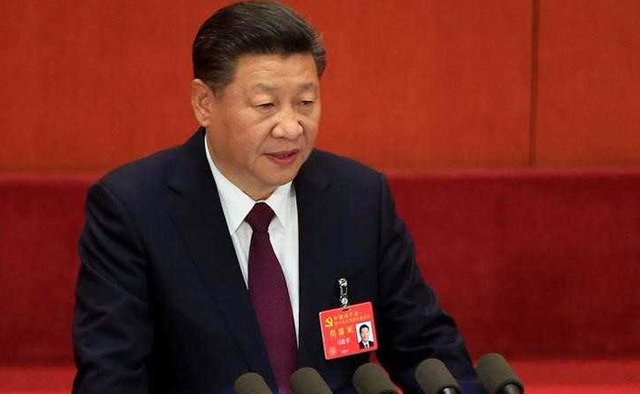China's Communist Party Elevates Xi Jinping to Status Alongside Mao Zedong

China's ruling Communist Party approved a revised charter that enshrined President Xi Jinping's name under its guiding principles, elevating him to a status that eluded his two immediate predecessors.
The amended constitution voted on by the party on Tuesday in Beijing listed "Xi Jinping thought on socialism with Chinese characteristics for a new era" alongside the theories of Mao Zedong and Deng Xiaoping. While presidents Jiang Zemin and Hu Jintao also secured contributions to the document, neither was featured by name.
Many of Xi's major initiatives of his first five years in power were added to the text, from his anti-corruption campaign to his Belt-and-Road Initiative and the army overhaul, described as "Xi Jinping's strong military thought." It also included Xi's call to "let the market play a decisive role" in the economy, a maxim the party first embraced in 2013.
The revisions cement Xi's rapid consolidation of power, laying the groundwork for him to influence policy in China for decades to come. No Chinese leader since Mao has managed to put his stamp on the party's prevailing ideology in its foundational document before stepping down.
Enshrining 'Xi Jinping thought' in the Constitution will ensure that Xi Jinping is considered one of the great transformative leaders" of China, Elizabeth Economy, director of Asia studies at the New York-based Council on Foreign Relations, said before the vote. The move "again puts him on par with Mao Zedong and Deng Xiaoping," Economy said.
Every party constitution adopted since 1945 has included a statement of the party's guiding principles. "Mao Zedong thought" was added in 1945, alongside Marxism-Leninism. Deng Xiaoping theory was enshrined in the party constitution posthumously in September 1997, seven months after he died.
The document approved Tuesday at the end of the party's twice-a-decade congress also avowed to continue "resolutely upholding Xi's leadership as the party's core leader." The moves give Xi greater power to enact policies after a crucial reshuffle on Wednesday, when the party will select a new Politburo Standing Committee, the country's top political body.
"The risk is that there's not as much debate, that people might not be willing to speak out," said David Zweig, a professor of political science at Hong Kong University of Science and Technology. "It really depends on what kind of internal environment Xi creates in policy circles."
Central to Xi's guiding theory was his statement revising the central problem confronted by China's policy makers. "What we now face is the contradiction between unbalanced and inadequate development and the people's ever-growing needs for a better life," Xi told party officials Wednesday.
He listed 14 points as basic focus areas for the new era. They included upholding party leadership in all work, deepening reform, the rule of law, improving people's livelihood, ecological balance, national security, contributing to global development and maintaining the international order.
Jiang Zemin had his "three represents" adopted in 2002 as he stepped down after 13 years as party chief. Hu Jintao's "scientific outlook on development" was added as the latest element to the party guiding principles in 2012, also when he retired from the party leadership.